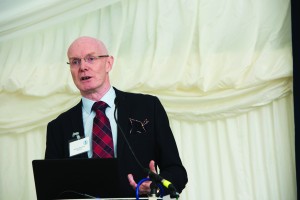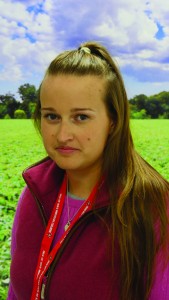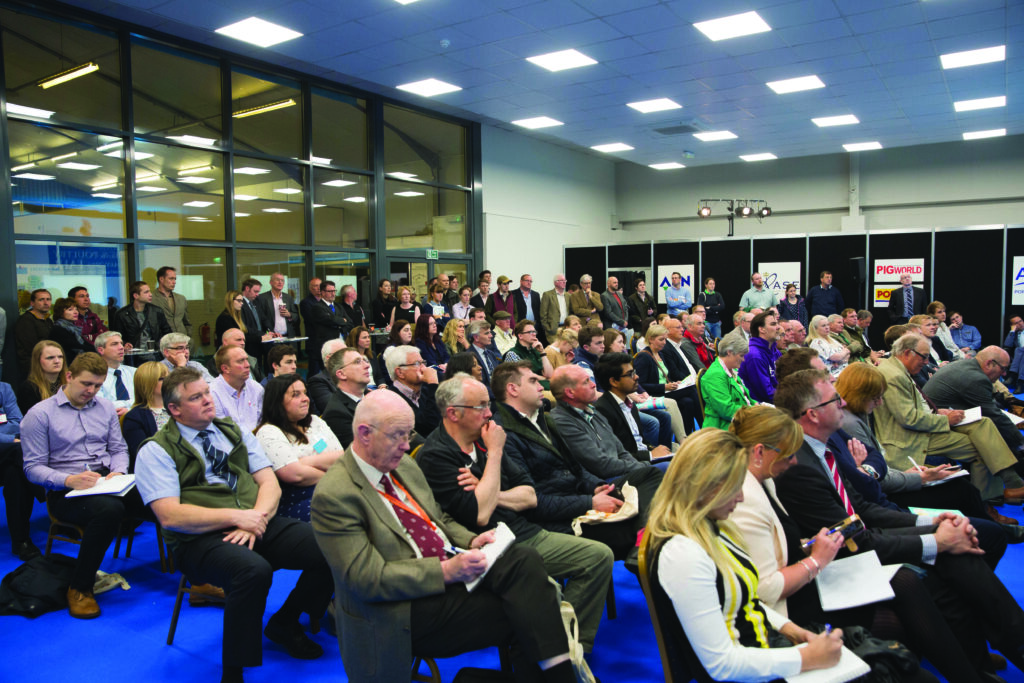One of the main attractions of visiting the Pig and Poultry Fair is the opportunity it always provides to get up to speed with the big issues of the day and how they affect your business.
This year is no different. The event has lined up top class speakers from across the industry for three forums on key topics. Free to attend, the events will take place at the same time on both days in the main forum theatre, adjacent to Hall 3.

Time: 11am
Speakers: Andrew Saunders, Tulip agricultural director; Ed Barker, NPA senior policy advisor
This event will discuss the outlook for the pig sector, including the political backdrop as the UK negotiates its exit from the EU.
Outlining some of the issues he expects to discuss, Mr Saunders said: “The next 12 to 24 months present some significant challenges and opportunities as a result of Brexit, changing consumer demands and the general health of pigs on farm, partly due to the required reduction in antibiotic use.
“I am confident the UK pig industry can adapt to meet these challenges and we may well see, as a result, a more collaborative relationship between producers and processors, which I see as a positive step forwards for everyone.
“We, as Tulip, face these opportunities in a positive way.
“In regards to Brexit, we would hope that the access to and from the EU remains as open for business as possible. We are closely engaged with senior UK government figures to ensure the concerns of our industry are suitably addressed.”

Time: 2pm
Speakers: Mick Sloyan, AHDB Pork strategy director (Tuesday); Lauren Turner, AHDB Pork processing projects manager (Wednesday); Wayland Farms – speaker TBC.
For the first time, farmers can now follow every step that each pig takes from birth to slaughter – with health, growth and carcase data, plus DNA details, to help them make production decisions and for end consumers to feel completely confident. This cutting edge project, spearheaded by AHDB, is presenting unique opportunities, including:
*The ability to automate detailed information capture throughout the value chain
* Individually tracking animals and their weight/growth throughout their lifetime
* Feedback on individual animal slaughter data
* A platform for the UK to create a world leading farm to fork traceability system.

Time: 3pm
Speakers: Joshua Onyango (pictured), livestock health consultant, Innovation for Agriculture;
Paul Thompson, pig vet, Garth Pig Practice
At this session, run by Innovation for Agriculture, Mr Onyango will share case studies associated with reducing antibiotics following his visit to pig farms in Sweden. He said: “Some EU countries, including Sweden, have reported lower use of antibiotics than the UK and without compromising the welfare of pigs.”
Mr Thompson will focus on areas where antibiotic reductions should be targeted.
“Firstly, we need to look at the farrowing house, focusing on management, vaccination and enhanced use of electrolytes,” he said.
“In the post-weaning phase, we can look to shorten the period of antibiotic use and adopt a more targeted approach, for example using in-water medication, as opposed to feed.
“The third key area is respiratory disease in grower/finishers, which can revolve around vaccination and targeting antibiotics more precisely to small groups when we need them. Basically it is just about doing everything we do do better!”
The British Pig and Poultry Fair, a Royal Agricultural Society of England event, partnered by ABN, takes place on May 15 and 16 at Stoneleigh Park, in Warwickshire.
The event is free to attend, but you need to register to gain entry, which is quick and easy via the website
www.pigandpoultry.org.uk




